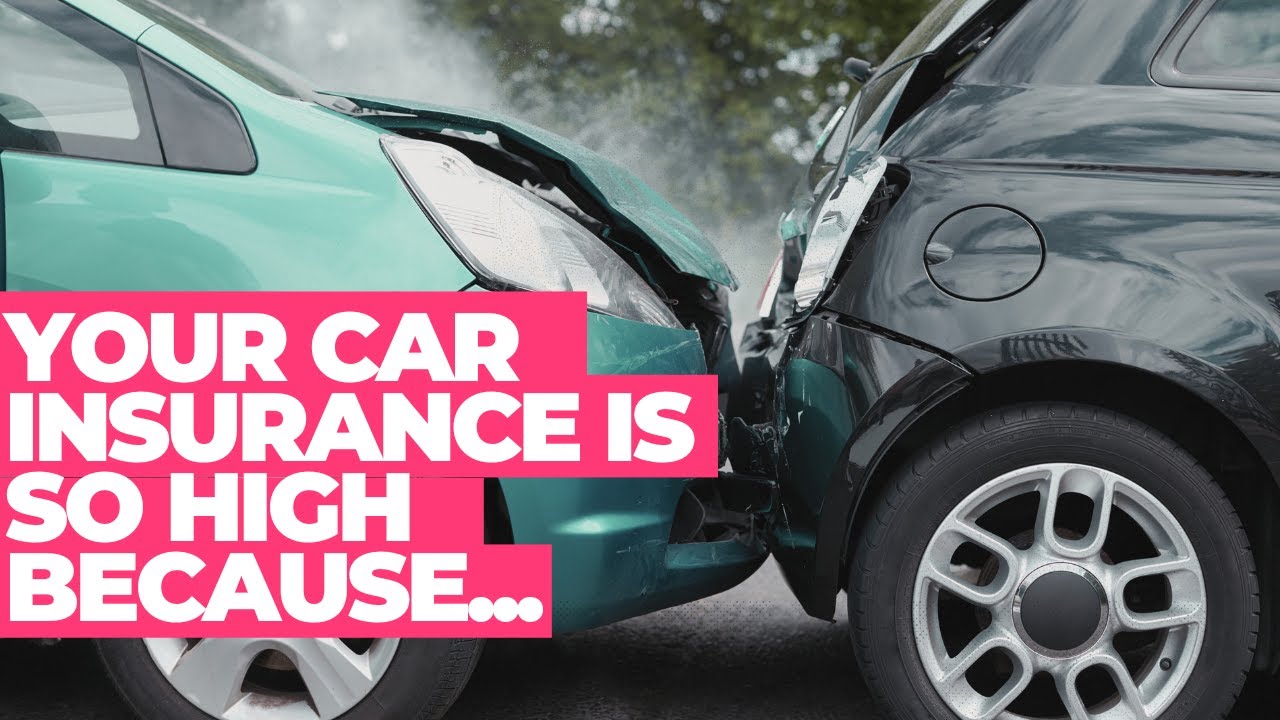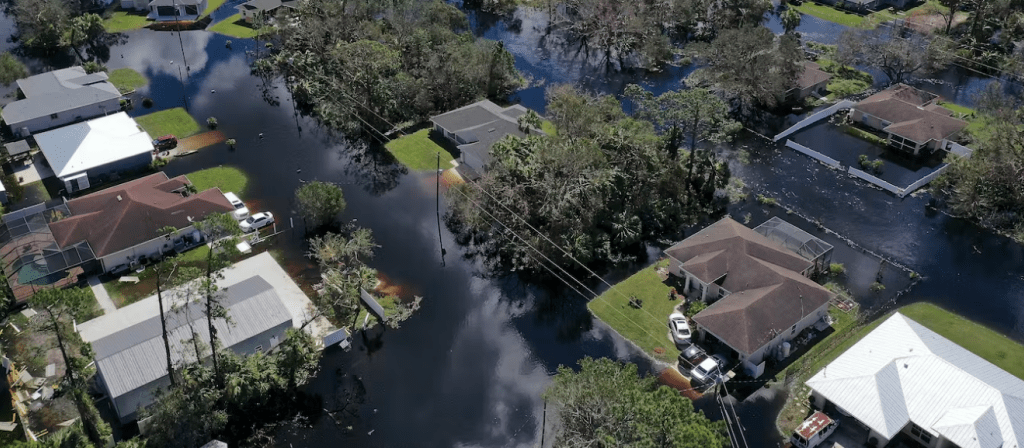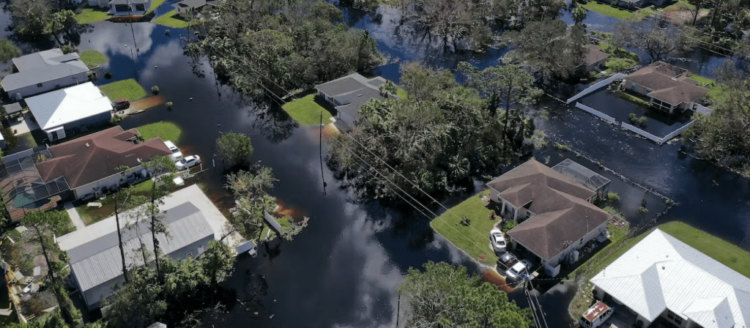
Why did my car insurance go up in Florida? This question is on the minds of many Floridians, as they grapple with rising insurance premiums. Florida’s unique insurance market, characterized by its no-fault system and susceptibility to natural disasters, plays a significant role in driving up costs.
Beyond these overarching factors, individual driving habits, vehicle characteristics, and external economic influences also contribute to the fluctuating cost of car insurance in the Sunshine State. Understanding these factors is crucial for policyholders seeking to navigate the complexities of Florida’s insurance landscape and potentially lower their premiums.
Florida’s Unique Insurance Market

Florida’s car insurance market stands out for its complex regulatory environment and unique factors that significantly influence premiums. These factors include a high population density, a large number of tourists, and a susceptibility to natural disasters, particularly hurricanes. The state’s no-fault insurance system, a significant driver of premiums, also plays a crucial role in shaping the insurance landscape.
Florida’s No-Fault Insurance System
Florida’s no-fault insurance system, established in 1971, requires all drivers to carry Personal Injury Protection (PIP) coverage. This coverage pays for medical expenses and lost wages regardless of fault in an accident. While intended to streamline the claims process and reduce litigation, this system has contributed to higher premiums in Florida.
The no-fault system’s impact on premiums is multifaceted:
* Increased Medical Costs: Florida’s PIP coverage allows individuals to seek treatment from any licensed medical provider, including chiropractors and acupuncturists. This open access can lead to higher medical bills, which insurance companies must cover.
* Fraudulent Claims: The no-fault system has been susceptible to fraudulent claims, particularly for PIP benefits. This has resulted in increased costs for insurers, which are ultimately passed on to policyholders.
* Limited Tort System: Florida’s no-fault system restricts lawsuits for pain and suffering in accidents unless certain thresholds are met. This limitation can incentivize individuals to file more claims under PIP, leading to higher costs.
The Role of the Florida Office of Insurance Regulation (OIR)
The Florida Office of Insurance Regulation (OIR) is responsible for overseeing the state’s insurance industry, including car insurance. The OIR plays a crucial role in regulating rates, ensuring solvency of insurance companies, and protecting consumers.
The OIR’s role in shaping Florida’s car insurance market includes:
* Rate Regulation: The OIR reviews and approves rate increases proposed by insurance companies. The agency considers factors such as loss experience, expenses, and the overall financial condition of insurers.
* Consumer Protection: The OIR investigates consumer complaints and enforces state insurance laws. The agency also provides information and resources to help consumers understand their insurance policies and rights.
* Financial Oversight: The OIR monitors the financial health of insurance companies to ensure they can meet their obligations to policyholders. This includes reviewing their capital adequacy and investment strategies.
Common Reasons for Increased Premiums
Several factors contribute to the rising cost of car insurance in Florida, beyond the unique characteristics of the state’s insurance market. These factors directly impact the costs insurers face, leading to increased premiums for policyholders.
Rising Repair Costs and Parts Availability
The cost of repairing vehicles has been steadily increasing in recent years, impacting car insurance premiums. This rise is attributed to several factors, including:
* Advancements in vehicle technology: Modern vehicles are equipped with complex electronic systems and advanced safety features, making repairs more intricate and expensive.
* Shortages in parts: Supply chain disruptions and global manufacturing challenges have led to shortages of certain car parts, driving up their prices.
* Inflation: General inflation across the economy has also contributed to the rising cost of materials and labor, affecting repair costs.
These factors create a ripple effect, pushing up the costs insurers face when settling claims, ultimately leading to higher premiums for policyholders.
Increased Claims Frequency and Severity
The number and severity of car accidents are also influencing insurance premiums. Several factors contribute to this trend:
* Increased traffic volume: More vehicles on the road lead to a higher probability of accidents.
* Distracted driving: The prevalence of smartphones and other distractions has contributed to an increase in accidents caused by driver inattentiveness.
* Aggressive driving: Road rage and aggressive driving behaviors have also contributed to a rise in accidents.
When accidents occur, the severity of injuries and damage to vehicles is also on the rise, leading to higher claim payouts for insurers.
Fraud and Abuse
Fraudulent claims and abuse of insurance systems can significantly impact premiums. Some common examples include:
* Staged accidents: Individuals intentionally cause accidents to file fraudulent claims for injuries and vehicle damage.
* Exaggerated claims: Policyholders may inflate the extent of their injuries or damage to receive higher payouts.
* Ghost claims: Individuals file claims for accidents that never occurred.
These fraudulent activities increase the costs insurers face, leading to higher premiums for honest policyholders.
Factors Specific to Individual Policyholders

Your individual characteristics and driving habits significantly influence your car insurance rates in Florida. Insurance companies use a complex system to assess risk, and your personal factors play a crucial role in determining your premium.
Driving History
Your driving history is a significant factor in determining your car insurance rates. Insurance companies consider your past driving behavior to assess the likelihood of future accidents.
- Accidents: Any accidents you’ve been involved in, even if you weren’t at fault, will likely increase your premium. The severity of the accident and the number of accidents you’ve had will also affect the increase.
- Traffic Violations: Speeding tickets, reckless driving, and other traffic violations can significantly increase your insurance rates. The severity of the violation and the number of violations you’ve received will impact the increase.
- Points on Your License: In Florida, points are assigned to your driver’s license for traffic violations. The more points you have, the higher your insurance rates will be. These points remain on your driving record for a specified period, typically 3-5 years.
Age, Gender, and Credit Score
- Age: Younger drivers, especially those under 25, are generally considered higher risk due to their inexperience. Insurance companies often charge higher premiums for this demographic. However, as you age and gain more driving experience, your rates may decrease.
- Gender: In some states, including Florida, insurance companies may consider gender when calculating premiums. Historically, statistics have shown that young men tend to have higher accident rates than young women. However, this practice is subject to debate and legal challenges, and it may vary among different insurance companies.
- Credit Score: While it might seem surprising, your credit score can impact your car insurance rates in Florida. Insurance companies often use credit score as a proxy for financial responsibility. A lower credit score may indicate a higher risk of filing claims, leading to increased premiums. However, it’s important to note that this practice is not universal and may vary by insurer.
Vehicle Type, Model, and Safety Features
The type of vehicle you drive significantly impacts your insurance rates. Insurance companies assess the risk associated with different vehicles based on factors such as:
- Vehicle Type: Sports cars, luxury vehicles, and high-performance cars are generally considered higher risk due to their potential for higher speeds and accidents. As a result, they tend to have higher insurance premiums.
- Vehicle Model: Certain car models have a history of higher accident rates or are more expensive to repair, which can influence insurance rates.
- Safety Features: Vehicles equipped with advanced safety features like anti-lock brakes, airbags, and stability control are often considered safer and may result in lower insurance premiums.
External Influences on Premiums: Why Did My Car Insurance Go Up In Florida

Florida’s car insurance market is heavily influenced by external factors that can significantly impact premiums. These factors extend beyond individual policyholder characteristics and delve into broader economic and environmental influences.
Natural Disasters
Natural disasters, particularly hurricanes and floods, are a major concern in Florida. The state’s vulnerability to these events significantly impacts car insurance premiums. Insurance companies factor in the likelihood and severity of natural disasters when setting rates.
- Increased Claims: Hurricanes and floods often result in widespread damage to vehicles, leading to a surge in insurance claims. This increase in claims directly affects insurance companies’ costs, which are ultimately passed on to policyholders in the form of higher premiums.
- Reinsurance Costs: To mitigate their risk, insurance companies purchase reinsurance, which essentially acts as a backup insurance policy. After a major disaster, reinsurance premiums increase as reinsurers assess the heightened risk. These increased reinsurance costs are reflected in the premiums paid by Florida drivers.
- Hurricane-Specific Coverage: Florida’s insurance market offers specialized hurricane coverage. While this coverage is optional, it can significantly impact premiums. The cost of this coverage is determined by the location’s risk of hurricane damage, with coastal areas typically facing higher premiums.
Inflation and Economic Conditions
Inflation and economic conditions play a crucial role in shaping car insurance rates. As the cost of goods and services rises, so do the costs associated with repairing or replacing damaged vehicles.
- Rising Repair Costs: Inflation drives up the cost of labor, parts, and materials, making vehicle repairs more expensive. This directly impacts insurance companies’ payouts for claims and subsequently affects premiums.
- Increased Replacement Costs: Inflation also impacts the cost of replacing damaged vehicles. As the value of vehicles rises, insurance companies need to adjust their premiums to cover the increased replacement costs.
- Investment Returns: Insurance companies invest a portion of their premiums to generate returns. Economic downturns can impact investment returns, potentially forcing insurance companies to raise premiums to maintain their financial stability.
Changes in State Laws and Regulations
State laws and regulations play a significant role in shaping the car insurance market. Changes in these regulations can directly affect insurance premiums.
- No-Fault Laws: Florida operates under a no-fault insurance system. Changes to these laws, such as modifications to the Personal Injury Protection (PIP) benefits, can impact premiums. For example, reducing PIP benefits could lead to lower premiums for some drivers.
- Rate Regulation: Florida has a system of rate regulation for car insurance. The state’s Office of Insurance Regulation (OIR) reviews and approves rate increases. Changes in regulatory requirements or the OIR’s approval process can influence premium adjustments.
- Fraud Prevention: State efforts to combat insurance fraud can impact premiums. By reducing fraudulent claims, insurance companies can lower their costs and potentially offer lower premiums to honest policyholders.
Strategies for Lowering Insurance Costs
Facing a car insurance premium increase in Florida can be frustrating, but there are steps you can take to potentially lower your costs. Understanding the factors that influence your premiums and implementing smart strategies can make a difference.
Increasing Your Deductible
Your deductible is the amount you pay out-of-pocket before your insurance coverage kicks in. Increasing your deductible can lead to lower premiums. This is because a higher deductible means the insurance company is less likely to have to pay out a claim. However, you should weigh the potential savings against the risk of having to pay a higher deductible if you do have an accident.
Improving Your Driving Record
Your driving record plays a significant role in determining your insurance premiums. A clean driving record with no accidents, violations, or traffic tickets will generally result in lower premiums. If you have a history of accidents or violations, consider defensive driving courses to improve your skills and potentially earn discounts.
Exploring Discounts
Many insurance companies offer discounts to policyholders who meet certain criteria. These discounts can be significant and can help you save money on your premiums. Some common discounts include:
- Good student discount: For students who maintain a good academic record.
- Safe driver discount: For drivers with a clean driving record.
- Multi-car discount: For insuring multiple vehicles with the same company.
- Multi-policy discount: For bundling your car insurance with other types of insurance, such as homeowners or renters insurance.
- Anti-theft device discount: For installing anti-theft devices in your vehicle.
- Loyalty discount: For being a long-term customer of the insurance company.
Comparing Coverage Options, Why did my car insurance go up in florida
Different types of car insurance coverage offer varying levels of protection and come with different costs. Understanding the benefits and drawbacks of each type can help you choose the coverage that best meets your needs and budget.
| Coverage Type | Benefits | Drawbacks |
|---|---|---|
| Liability Coverage | Covers damages to other people’s property or injuries to other people in an accident you cause. | Does not cover damages to your own vehicle. |
| Collision Coverage | Covers damages to your vehicle in an accident, regardless of who is at fault. | Can be expensive, especially for newer vehicles. |
| Comprehensive Coverage | Covers damages to your vehicle from events other than accidents, such as theft, vandalism, or natural disasters. | May not be necessary if you have an older vehicle with a low value. |
Shopping for Car Insurance
Comparing quotes from different insurance companies is essential to finding the best rates. Use online comparison tools or contact insurance companies directly to request quotes. When comparing quotes, make sure you are comparing apples to apples. This means comparing quotes for the same coverage levels and deductibles. You should also consider the company’s financial stability, customer service reputation, and claims handling process.
Final Thoughts
In conclusion, the cost of car insurance in Florida is influenced by a complex interplay of factors, both statewide and individual. While navigating this landscape can be challenging, understanding the key drivers of premium increases empowers policyholders to make informed decisions and potentially reduce their insurance costs. By taking proactive steps, such as improving their driving records, exploring discounts, and comparing quotes, Floridians can gain greater control over their insurance premiums and ensure they are getting the best value for their coverage.
Common Queries
How often do car insurance rates change in Florida?
Car insurance rates can change frequently in Florida, depending on factors like claims activity, legislative changes, and economic conditions. Insurance companies may adjust rates several times a year, so it’s important to review your policy periodically.
What are some common discounts offered by car insurance companies in Florida?
Florida car insurance companies often offer discounts for safe driving, good student records, multiple car insurance policies, and safety features in your vehicle. Be sure to inquire about available discounts when shopping for insurance.
What are the penalties for driving without car insurance in Florida?
Driving without car insurance in Florida is illegal and carries significant penalties, including fines, license suspension, and even jail time. It’s crucial to maintain valid car insurance coverage to avoid legal repercussions.





